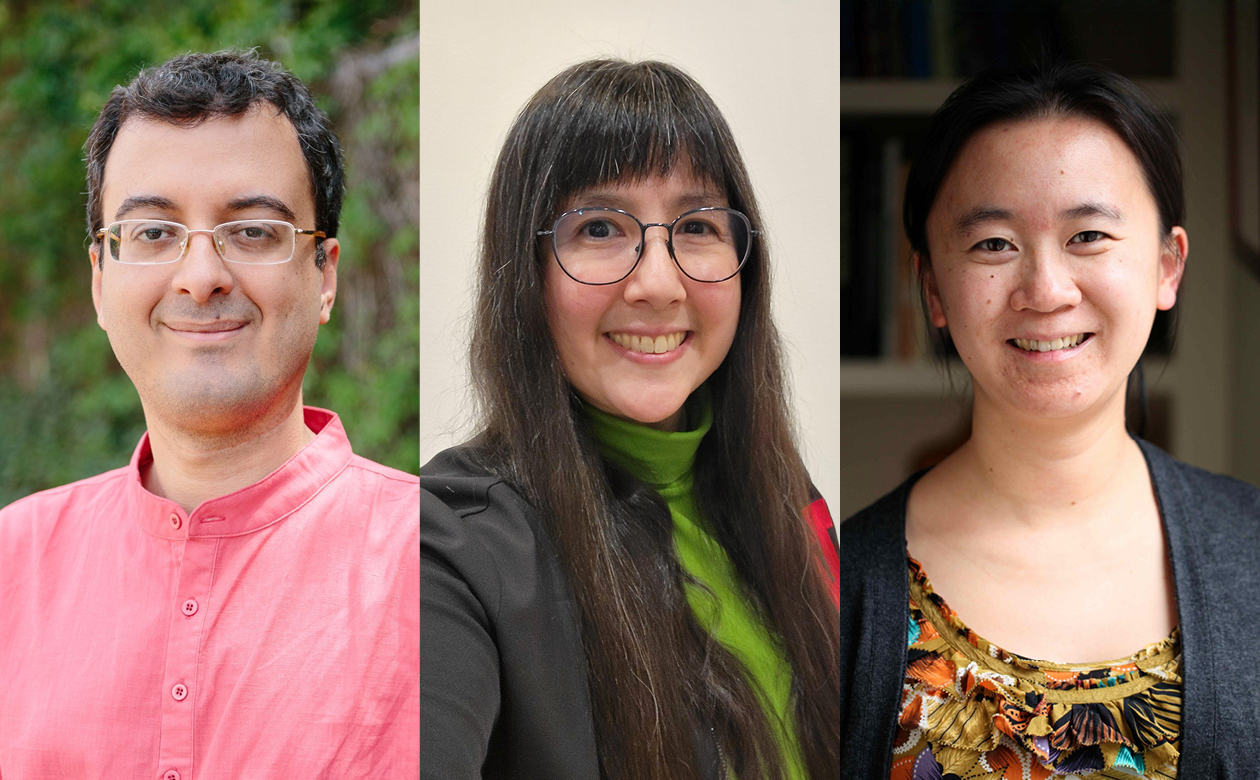University of Utah Scientific Computing and Imaging (SCI) Institute faculty members Amirhossein (Amir) Arzani, Katherine (Kate) Isaacs, and Bei Wang Phillips on Jan. 14 received the Presidential Early Career Award for Scientists and Engineers (PECASE), the U.S. government’s highest honor for outstanding scientists and engineers early in their careers.
Established by President Bill Clinton in 1996, the award recognizes scientists and engineers who show exceptional potential for leadership. To be eligible, faculty must first earn early-career funding from one of 14 participating federal agencies—Arzani is funded by the National Science Foundation (NSF) and Isaacs and Phillips by the Department of Energy (DOE). From that already-exclusive group, agencies then pick leading researchers to receive the PECASE.
“This prestigious honor recognizes Amir, Kate, and Bei as top early-career faculty in their fields,” SCI Institute Director Manish Parashar said. “They’re advancing science and technology through their research. The SCI Institute is proud of their achievements and proud to support their innovative, impactful work.”
About the winners from the SCI Institute:
Amir Arzani is an associate professor of mechanical engineering. Through NSF funding, he explores scientific machine-learning approaches for modeling blood flow. “This award is a truly once-in-a-lifetime honor and I am just incredibly grateful to be among the recipients,” Arzani said. “The award goes to all of my lab trainees over the past 7.5 years. Without them, I could not have gone this far.”
Kate Isaacs is an associate director at the SCI Institute and an associate professor in the Kahlert School of Computing. Through DOE funding, she creates interactive visualizations to improve supercomputer-scale science, increasing efficiency for supercomputing researchers and users. "I am so excited and honored to receive this award,” Kate said. “It's been a great joy to work with such wonderful students and collaborators on this research in such a supportive environment created by my colleagues, my mentors, and my spouse."
Bei Wang Phillips is an associate professor in the Kahlert School of Computing. Through DOE funding, she focuses on the analysis and visualization of large-scale scientific simulations. Her recent projects include tracking tropical cyclones and low-level cloud systems, as well as analyzing ensembles of flood-causing atmospheric rivers. Phillips said receiving the PECASE was a pleasant surprise. “I am very grateful for my family, students, postdocs, and collaborators, without whom I would not have gotten this award. I am happy to continue doing what I love, which is research.”
These three PECASE honors are the first for SCI, though co-founder Chris Johnson in 1995 was among 30 researchers to receive an NSF Presidential Faculty Fellow award from President Clinton. That honor was a precursor to the PECASE. This year’s PECASE cohort, awarded by President Joe Biden, totals nearly 400 researchers. View the full list.
Other 2025 PECASE winners from the U include Kahlert School of Computing associate professor Ryan Stutsman and Wilkes Center for Climate Science and Policy Director William Anderegg, who co-led the environmental working group for SCI’s One-U Responsible Artificial Intelligence Initiative.

